All Stories
-
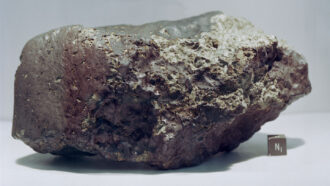 Planets
PlanetsNo, organic molecules alone don’t point to life on Mars
These carbon-based molecules, found in a meteorite, may reflect merely a mixing of water and minerals on the Red Planet over billions of years.
By Nikk Ogasa -
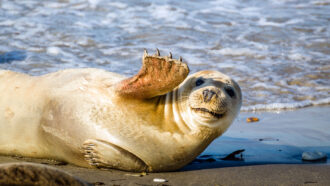 Chemistry
ChemistryExplainer: What are fats?
A fat molecule's three long chains of carbon and hydrogen atoms repel water, stash energy and keep living things warm — even in the bitter cold.
-
 Physics
PhysicsAnalyze This: Masks cut the distance that spit droplets fly
Both cloth masks and surgical masks reduced the distance spit traveled from a person talking or coughing by at least half, compared with no mask.
-
 Brain
BrainAmericans tend to see imaginary faces as male, not female
When people see imaginary faces in everyday objects, those faces are more likely to be perceived as male than female.
-
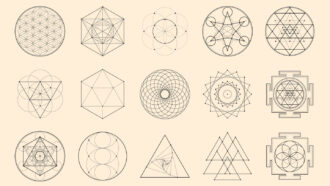 Math
MathScientists Say: Geometry
Geometry is math that allows people to measure, analyze and compare figures in space.
-
 Health & Medicine
Health & MedicineHere’s how a new sleeping bag could protect astronauts’ eyesight
A new sleeping bag could avoid vision problems on long space flights due to microgravity. It counters a fluid buildup behind astronauts’ eyes.
-
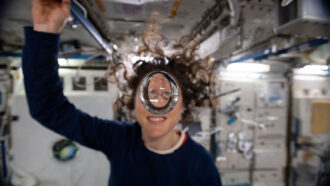 Physics
PhysicsExplainer: Gravity and microgravity
The force of gravity holds us on the ground, keeps planets in orbit and extends throughout space. A very weak gravitational pull is called microgravity.
By Trisha Muro and Bethany Brookshire -
 Psychology
PsychologyNew training builds ‘mental’ muscles in athletes
The training builds focus and resiliency while limiting the self-doubt that can cripple competitors’ ability to perform at their peak.
-
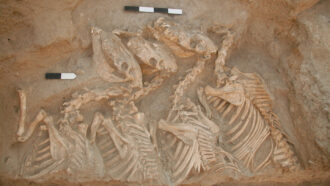 Animals
AnimalsMysterious kunga is the oldest known human-bred hybrid animal
People bred these animals — part donkey, part wild ass — some 4,500 years ago, probably for use in fighting wars.
By Jake Buehler -
 Science & Society
Science & SocietyLet’s learn about the science of the Winter Olympics
From scientific innovations to climate change and weather, there’s plenty of science to be found among the feats of amazing athleticism.
-
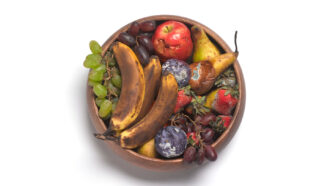 Ecosystems
EcosystemsScientists Say: Decay
This word can refer to rotting flesh or the transformation of radioactive atoms.
-
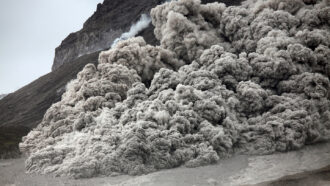 Earth
EarthVolcanic avalanches may be more destructive than previously thought
Pressures within these pyroclastic flows may be as much as three times as high as observations had suggested.
By Nikk Ogasa